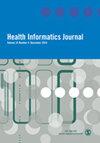Machine learning approaches for asthma disease prediction among adults in Sri Lanka
IF 2.2
3区 医学
Q2 HEALTH CARE SCIENCES & SERVICES
引用次数: 0
Abstract
Objectives: Addressing the challenge of cost-effective asthma diagnosis amidst diverse symptom patterns among patients, this study aims to develop a machine learning-based asthma prediction tool for self-detection of asthma. Methods: Data from 6,665 participants in the Sri Lanka Health and Ageing Study (2018-2019) are used for this research. Thirteen machine learning algorithms, including Logistic Regression, Support Vector Machine, Decision Tree, Random Forest, Naïve Bayes, K-Nearest Neighbors, Gradient Boost, XGBoost, AdaBoost, CatBoost, LightGBM, Multi-Layer Perceptron, and Probabilistic Neural Network, are employed. Results: A hybrid version of Logistic Regression and LightGBM outperformed other models, achieving an AUC of 0.9062 and 79.85% sensitivity. Key predictive features for asthma include wheezing, breathlessness with wheezing, shortness of breath attacks, coughing attacks, chest tightness, nasal allergies, physical activity, passive smoking, ethnicity, and residential sector. Conclusion: Combining Logistic Regression and LightGBM models can effectively predict adult asthma based on self-reported symptoms and demographic and behavioural characteristics. The proposed expert system assists clinicians and patients in diagnosing potential asthma cases.斯里兰卡成人哮喘疾病预测的机器学习方法
研究目的为了应对在患者症状模式多样化的情况下进行经济有效的哮喘诊断所面临的挑战,本研究旨在开发一种基于机器学习的哮喘预测工具,用于哮喘的自我检测。研究方法本研究使用了斯里兰卡健康与老龄化研究(2018-2019 年)中 6665 名参与者的数据。采用了 13 种机器学习算法,包括逻辑回归、支持向量机、决策树、随机森林、奈夫贝叶斯、K-近邻、梯度提升、XGBoost、AdaBoost、CatBoost、LightGBM、多层感知器和概率神经网络。结果逻辑回归和 LightGBM 的混合版本优于其他模型,AUC 达到 0.9062,灵敏度达到 79.85%。哮喘的主要预测特征包括喘息、呼吸困难伴喘息、气短发作、咳嗽发作、胸闷、鼻过敏、体力活动、被动吸烟、种族和居住部门。结论结合逻辑回归和 LightGBM 模型,可以根据自我报告的症状以及人口和行为特征有效预测成人哮喘。建议的专家系统可协助临床医生和患者诊断潜在的哮喘病例。
本文章由计算机程序翻译,如有差异,请以英文原文为准。
求助全文
约1分钟内获得全文
求助全文
来源期刊

Health Informatics Journal
HEALTH CARE SCIENCES & SERVICES-MEDICAL INFORMATICS
CiteScore
7.80
自引率
6.70%
发文量
80
审稿时长
6 months
期刊介绍:
Health Informatics Journal is an international peer-reviewed journal. All papers submitted to Health Informatics Journal are subject to peer review by members of a carefully appointed editorial board. The journal operates a conventional single-blind reviewing policy in which the reviewer’s name is always concealed from the submitting author.
 求助内容:
求助内容: 应助结果提醒方式:
应助结果提醒方式:


